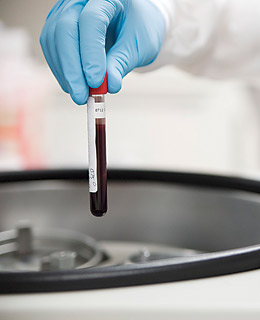
Every woman over age 35 is mindful of menopause, but it's impossible to know how fast it's coming. That may change soon, thanks to scientists at the University Medical Center Utrecht in the Netherlands. Earlier this year, they discovered that a simple blood test that detects the anti-Mullerian hormone (AMH) — a chemical that helps track egg supply — can predict when a woman will enter menopause. A high AMH level shows that the woman's ovaries are still releasing lots of eggs. By comparing levels of the hormone in women ages 25 to 46 with those of postmenopausal women 58 to 70, the researchers were able to establish cutoff points that could portend when the change will occur and, by implication, suggest how many years of fertility are left. More research still needs to be done, but it may not be long before women are able to predict their fertility timetable much more accurately.